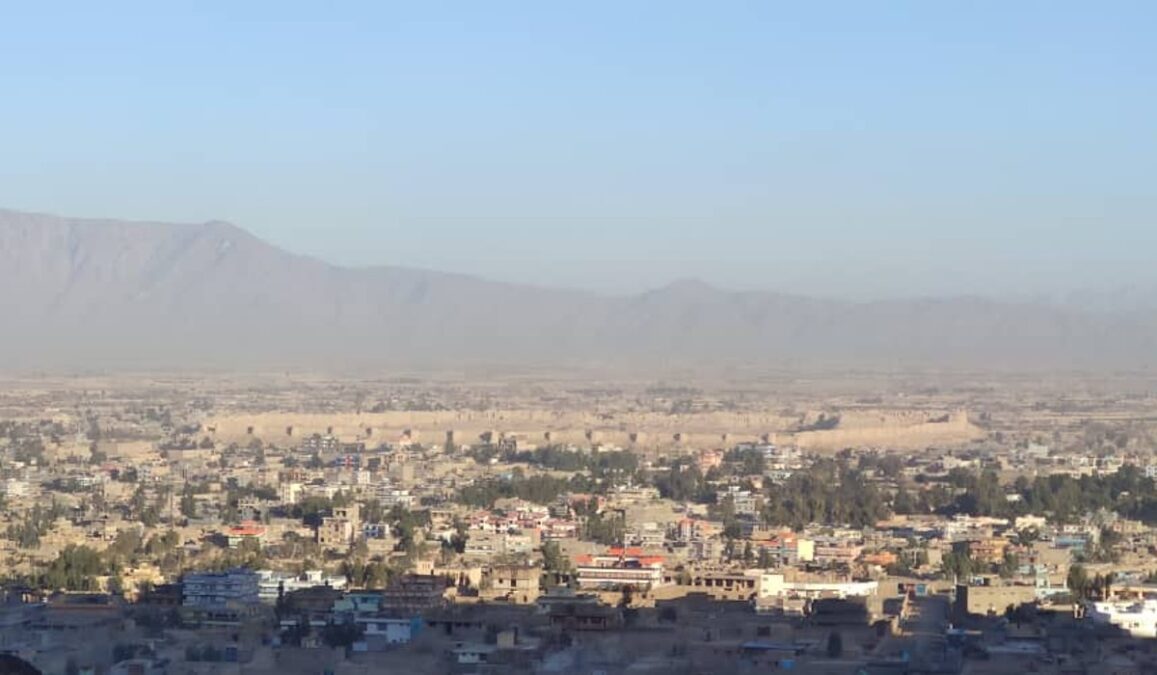The United Nations’ latest quarterly report on Afghanistan, published Saturday, noted that concerns remain over the presence of foreign terrorist groups in the country and noted that the Taliban need “to take more concrete actions on the security and political fronts, including engaging in counter-terrorism dialogue with the region and the international community”.
The report stated that the ongoing harm inflicted on Afghans by targeted attacks on civilians remains deeply concerning and that IED attacks against civilian targets or in civilian areas violate international law and must cease immediately.
The report was released ahead of Tuesday’s UN Security Council meeting which will see members discuss the situation in Afghanistan.
According to the report, the UN recorded a 23 percent increase in security incidents in Afghanistan between 17 August and 13 November compared to the same period last year.
The organization stated it recorded 1,587 security-related incidents, between mid-August and mid-November, compared to 1,291 incidents recorded during the same period in 2021.
The report noted that armed clashes increased by 27 percent, from 99 to 126; air strikes by 25 percent, from 4 to 5; and detonations of improvised explosive devices by seven percent, from 74 to 79. Assassinations decreased by 53 percent, from 160 to 75.
According to the report, the western, southern and eastern regions accounted for 52 percent of recorded incidents, with Kabul, Herat and Kandahar being the most affected provinces.
UNAMA also stated that armed opposition activities intensified. The mission stated it recorded 22 armed groups claiming to operate in 11 provinces. The National Resistance Front (NRF) and the National Liberation Front claimed attacks in Badakhshan, Baghlan, Kapisa, Nangarhar, Nuristan, Takhar, Panjshir and Parwan Provinces. While the NRF expanded its operations in eastern and northeastern provinces, the most significant clashes took place in Panjshir, where the Taliban launched an offensive in several districts on September 9.
The UN report also stated that attacks claimed by or attributed to Daesh decreased to 30 attacks in six provinces from 121 attacks in 14 provinces during the same period in 2021, although casualties remained significant. Claimed incidents included a suicide attack on the Russian Embassy on September 5.
The report pointed out that border tensions continued between mid-April and mid-November, and that of the 17 incidents recorded, 14 occurred along the border between Afghanistan and Pakistan.
The report also addressed the concerns of several countries in the region including Pakistan and Tajikistan, who expressed concerns over the threat posed by terrorist groups operating from Afghanistan.
On 14 September, the Taliban’s Ministry of Foreign Affairs refuted reports that Jaish-e-Mohammad’s leader, Masood Azhar, had sought refuge in Afghanistan. This came amid rising reports of drones and fighter jets entering Afghan airspace, UNAMA reported.
Meanwhile, the UN stated it had documented 58 security incidents directly affecting its personnel, including 23 intimidation cases, 12 crime-related incidents, 4 arrests and 12 incidents affecting United Nations assets. The total represents a decrease from 142 incidents recorded during the same period in 2021.
Human rights issues
During the reporting period, UNAMA documented 530 civilian casualties (124 killed; 406 wounded). The leading causes were improvised explosive devices (IEDs) and unexploded ordnance.
But on 30 September, 54 people were killed and 114 wounded – mainly young women and girls from the Hazara community – in an unclaimed suicide attack on the Kaaj Educational Centre in the Dasht-e-Barchi area of Kabul.
During the same period, unexploded ordnance killed 19 and wounded 35 people, mostly children.
In addition to this, UNAMA also documented at least nine extrajudicial killings, at least five cases of torture and ill-treatment and at least 29 arbitrary arrests and detentions carried out by the Taliban against former government officials and Afghan National Defence and Security Forces members, in violation of the general amnesty announced in August 2021.
UNAMA stated that 69 extrajudicial killings, 14 arbitrary arrests and detentions and six instances of torture and ill-treatment of individuals accused of affiliation with the National Resistance Front, primarily in Panjshir Province, where at least 48 extrajudicial killings between 12 and 14 September, were recorded in Dara and Khenj districts.
According to the report, some captured National Resistance Front members were reportedly executed extrajudicially.
UNAMA stated that in this period, the Taliban continued to curtail Afghans’ rights to freedom of opinion, expression and peaceful assembly.
Despite the insistence of the Taliban’s ministry for the propagation of virtue and the prevention of vice that its guidance was merely of a “recommendatory” nature, UNAMA documented at least 24 human rights violations carried out by its personnel.
These included ill-treatment and torture (primarily beatings) and arbitrary arrests and detentions of individuals accused of infractions, including barbers trimming men’s beards, shopkeepers allowing unaccompanied women to shop, women without a mahram or women accused of breaking dress codes.
Women’s and girls’ enjoyment of their basic rights and freedoms remains particularly constricted while the inconsistent but sometimes harsh enforcement of the hijab and mahram directives by the Taliban continues to result in reported physical and verbal abuse, the report stated.
UNAMA also stated that female patients without a mahram were being turned away at medical facilities and now, only female health workers may attend to women.
“Incidents of violence against women and girls continue to be reported, ranging from murder, honour killings and suicides to forced marriages and beatings causing injuries or disabilities,” the report stated.
“The women and girls of Afghanistan should not and must not be left behind. Their meaningful participation in public life, across all sectors of the country’s political and economic sphere, is critical to long-term prospects for peace consolidation in Afghanistan. Afghanistan must deliver on its commitments to international principles, norms and standards against discrimination, inequity, inequality, injustice and impunity,” read the report.





